National Glaucoma Awareness Week (June 4th -10th) is a time to learn more about this important eye health condition. In the UK, some form of glaucoma affects about 2 in 100 people over the age of 40, while 480,000 people have chronic open-angle glaucoma.
Glaucoma refers to a collection of eye diseases that cause optic nerve damage. This can vary from Open Angle or Chronic Glaucoma, Narrow Angle Glaucoma, Low Tension Glaucoma and Secondary Glaucoma.
Symptoms can vary but include reduced peripheral vision, intraocular pressure greater than 21, or a large discrepancy in IOPs between the two eyes. Optic cup asymmetry is another sign of glaucoma to be aware of.
Other glaucoma symptoms include loss of sight, blurred vision or halo around lights, pain in your eye, headaches, feeling sick or vomiting, redness in the white of your eye and fixed and semi-dilated pupils.
One of your eyes may be more affected than the other, but if treatment is considered early then it can potentially prevent further sight loss.
What Causes Glaucoma?
Glaucoma has a wide range of causes and these can include high levels of stress, not getting enough nutrients, following a poor diet, taking drugs, having a family history of glaucoma or other chronic diseases. Being African-American, using steroids, or being extremely near or farsighted can all have an impact on your risks of glaucoma.
What many doctors and optometrists may not tell you is that glaucoma can be prevented naturally by following a good eye health plan. Symptoms of glaucoma can naturally improve when you take the right nutrients and lifestyle regimen for best results.
Who Is Most At Risk of Glaucoma?
Take a look at the following infographic to find out more information about this eye disease:

What Nutrients Are Recommended For Glaucoma?
Vitamin C is a powerful antioxidant that should be considered for anyone with glaucoma. Taking a Vitamin C supplement may significantly reduce intraocular pressure that may help to reduce and maintain eye pressure when taken regularly.
Bilberry is a rich antioxidant that can protect and strengthen the capillary walls of the eyes, meaning it is highly effective for treating glaucoma, cataracts and macular degeneration. When combined with other nutrients such as Bupleureum, Dandelion root, Gardenia, Gingko Biloba and Milk Thistle, it can provide powerful support for improving blood circulation and stagnant energy around the eyes.
Gingko Biloba has been shown in one study to “improve visual fields in some”. Gingko also increases blood flow and may have a neuroprotective effect.
Curcumin provides a powerful antioxidant and anti-inflammatory effect that may play a role in benefiting eye conditions such as glaucoma and macular degeneration. Curcumin has been shown to protect nerves from damage – making it vital for people with glaucoma as this is a disease of the optic nerve.
Omega 3 fatty acids (ALA – Alpha-Linolenic Acid) found in Krill Oil or Hemp Seed Oil have been linked with a lower risk of glaucoma. Higher levels of total polyunsaturated fatty acids (PUFAs) meanwhile are associated with higher odds of developing glaucoma. This is according to a study published online Dec 21. in JAMA Ophtalmology.
Taking Alpha Lipoic Acid may also support good eye health by acting as a potent antioxidant to repair oxidative damage, regenerate other antioxidants and chelate excess metals.
Acupressure may also benefit glaucoma sufferers. One study evaluated the effect of auricular acupressure in controlling intraocular pressure (IOP) in glaucoma patients.
Patients within the acupressure group received auricular acupoint stimulator tapping and regular massage twice a day for 4 weeks. Visual acuity was seen to improve significantly in the acupressure group. However, the intraocular pressure returned to the initial level after the acupressure was discontinued. Therefore, acupressure may help to provide relief for glaucoma patients.
All of the above recomendations may help to provide relief for glaucoma sufferers and revitalise your eye health. For further recommendations, see the sections below.
Recommended Reading
 Improving Eye Disease in 30 Days – Contains a detailed guide of how to improve your eye health by taking the right nutrients and following a healthy lifestyle plan to find relief for a wide range of eye conditions. Follow the recommendations and 30 day rehabilitation plan at the back of the book to start experiencing relief for age-related macular degeneration, cataracts and glaucoma amongst other conditions. Download for free from Naturally Healthy News. Improving Eye Disease in 30 Days – Contains a detailed guide of how to improve your eye health by taking the right nutrients and following a healthy lifestyle plan to find relief for a wide range of eye conditions. Follow the recommendations and 30 day rehabilitation plan at the back of the book to start experiencing relief for age-related macular degeneration, cataracts and glaucoma amongst other conditions. Download for free from Naturally Healthy News. |
Recommended Examples
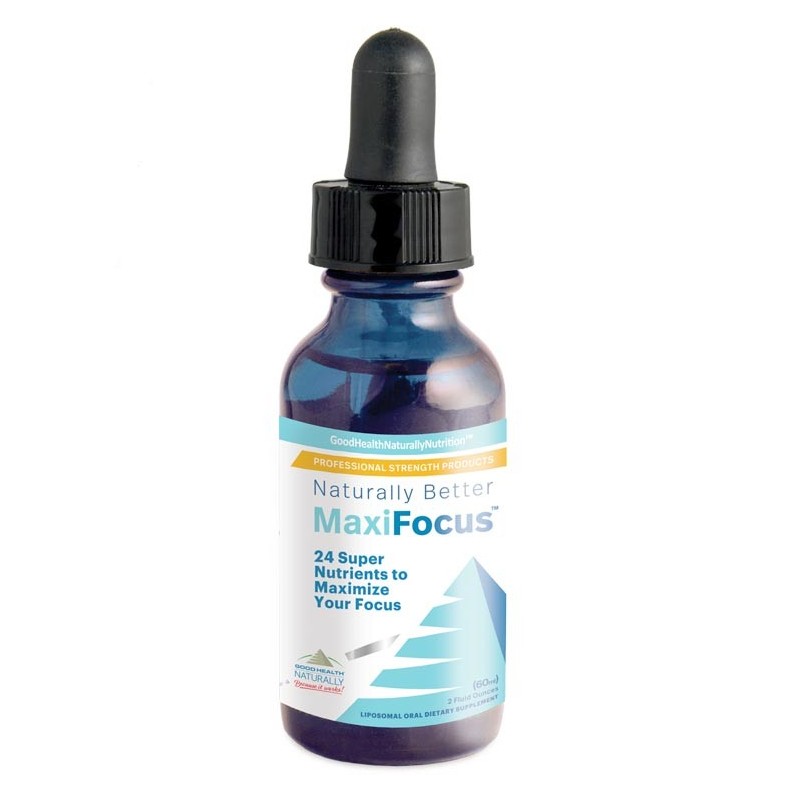 MaxiFocus™ – Contains 24 super nutrients and antioxidants including Vitamin D3. delivers 100mg of Lutein, along with Vitamins A, C, E, Zinc and Copper as recommended in the AREDS formulation.Delivers a complete spectrum of eye nutrients that absorb at least 900% better in a sublingual formula than the tablet equivalent. In most cases, the nutrients are in the eye within 2 minutes. Available from Good Health Naturally. MaxiFocus™ – Contains 24 super nutrients and antioxidants including Vitamin D3. delivers 100mg of Lutein, along with Vitamins A, C, E, Zinc and Copper as recommended in the AREDS formulation.Delivers a complete spectrum of eye nutrients that absorb at least 900% better in a sublingual formula than the tablet equivalent. In most cases, the nutrients are in the eye within 2 minutes. Available from Good Health Naturally. |
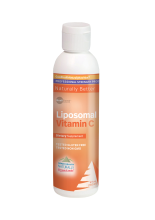 Liposomal Vitamin C -Contains 1000mg of high-quality Liposomal Vitamin C, plus 400 mg PC per serving. With the liposomal delivery system, all of the vitamin C can reach the bloodstream, without any side effects. Liposomal Vitamin C -Contains 1000mg of high-quality Liposomal Vitamin C, plus 400 mg PC per serving. With the liposomal delivery system, all of the vitamin C can reach the bloodstream, without any side effects.
Taken at high doses it is linked to countless health benefits, with the potential to support immune function, brain health, eye health, blood sugar, and heart health. May help to promote healing, maintaining healthy bone, cartilage, and connective tissues. Needed by the body to protect against stress and injury. Available from Good Health Naturally. |
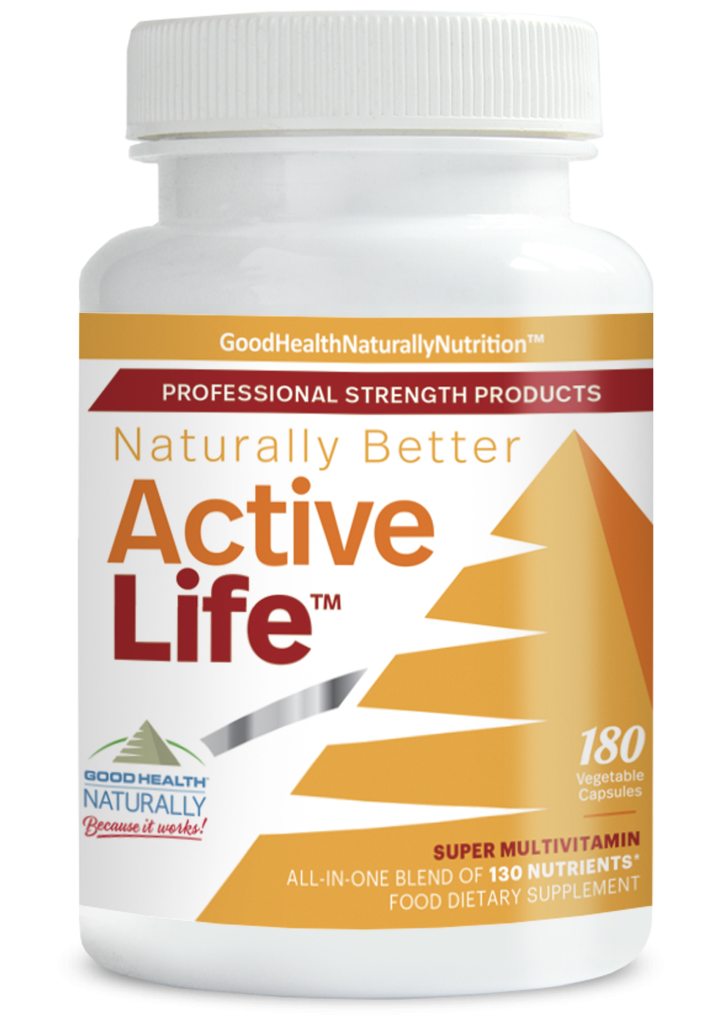 Active Life™ Capsules –Contains 300mg of Bilberry extract, 20mg of Lutein, 4mg of Zeaxanthin to support eye health. Also contains 130 nutrients, including approximately 75 plant-derived minerals, 12 vitamins and 3 other nutrients to help replenish storages in your body that are naturally depleted each day. Available from Good Health Naturally. Active Life™ Capsules –Contains 300mg of Bilberry extract, 20mg of Lutein, 4mg of Zeaxanthin to support eye health. Also contains 130 nutrients, including approximately 75 plant-derived minerals, 12 vitamins and 3 other nutrients to help replenish storages in your body that are naturally depleted each day. Available from Good Health Naturally. |
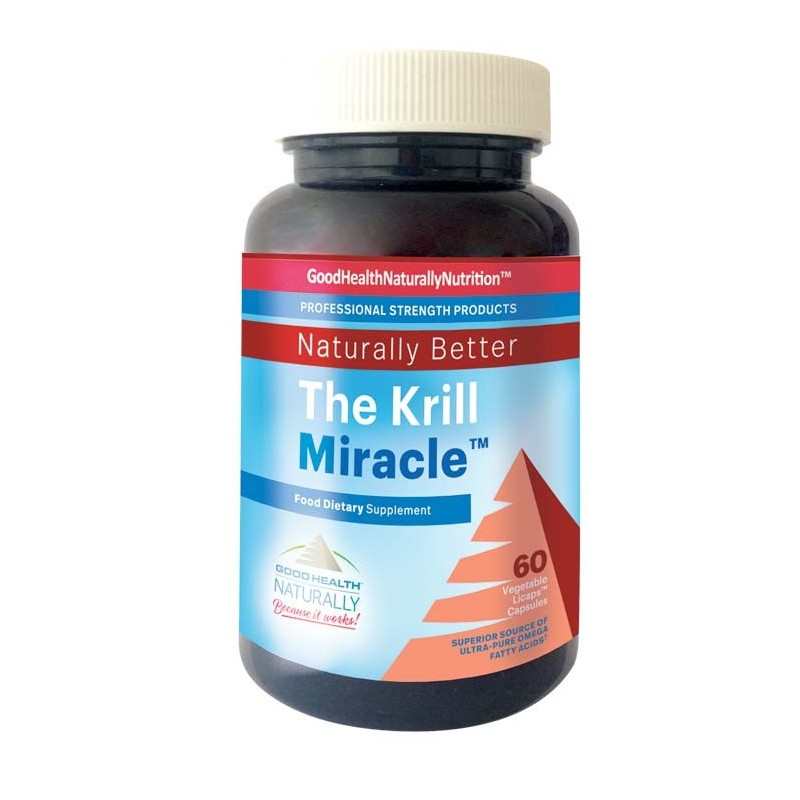 The Krill Miracle™ – A blend of ultra-pure omega fatty acids formulated to promote wellness and longevity. Contains high strength DHA/EPA that supports anti-inflammatory processes, while maintaining normal cholesterol lipids. May aid cardiovascular health, joint mobility, brain function and skin health. Available from Good Health Naturally. The Krill Miracle™ – A blend of ultra-pure omega fatty acids formulated to promote wellness and longevity. Contains high strength DHA/EPA that supports anti-inflammatory processes, while maintaining normal cholesterol lipids. May aid cardiovascular health, joint mobility, brain function and skin health. Available from Good Health Naturally. |
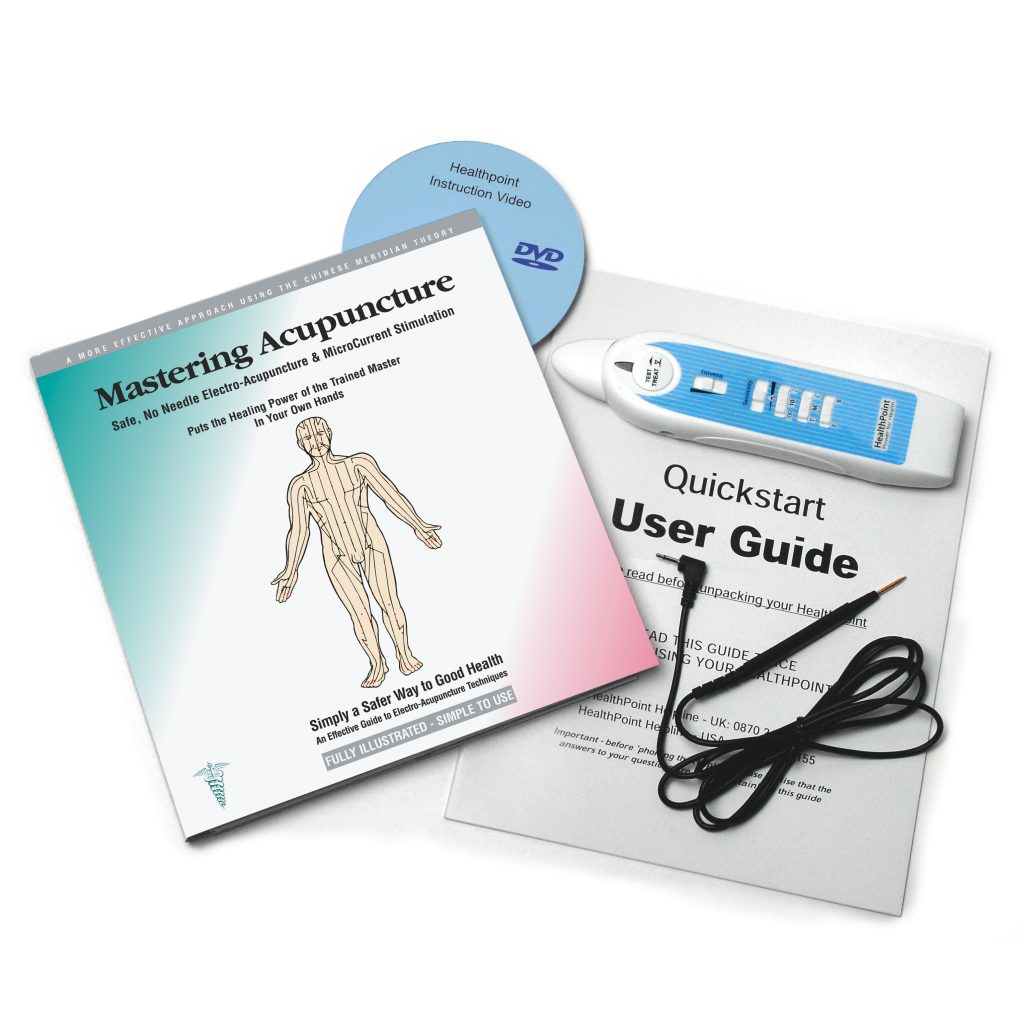 HealthPoint™ – Allows you to become a ‘Master of Acupressure’ to help any condition – without needles. HealthPoint allows you to locate and stimulate acupuncture points accurately. Stimulates the body’s healing system, and can accelerate tissue repair. Helps over 160 conditions, including IBS and digestive issues. Available from Good Health Naturally. HealthPoint™ – Allows you to become a ‘Master of Acupressure’ to help any condition – without needles. HealthPoint allows you to locate and stimulate acupuncture points accurately. Stimulates the body’s healing system, and can accelerate tissue repair. Helps over 160 conditions, including IBS and digestive issues. Available from Good Health Naturally. |






I have cataracts and need to know what to use to remove them naturally !!!
Thank you !!!